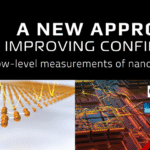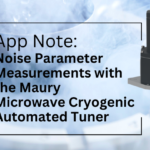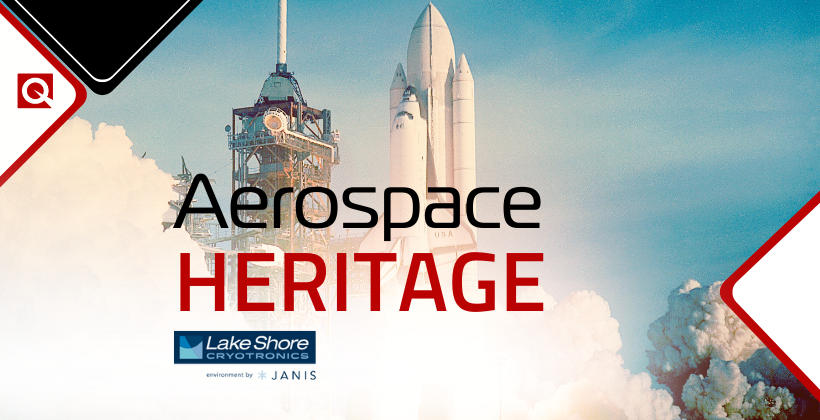
Since integrating Janis Research into its product line in 2020, Lake Shore Cryotronics has manufactured numerous custom-designed cryogenic systems specifically suited for aerospace and astronomy applications. With decades of experience delivering rugged, mission-ready equipment, Lake Shore—through its Environment by Janis division—offers cryostats engineered to meet the extremes of space and high-altitude environments.
Mission-Critical Projects
Custom cryogenic systems from Janis have been deployed in collaborations with NASA and other leading institutions:
- The ARC Argus program (successor to ATLAS), enabling high-altitude atmospheric research using stable tracer detection.
- Qualification test hardware for the SIRTF (now Spitzer Space Telescope), operating at liquid-helium temperatures under mirror test protocols—a project that earned Janis a Public Service Group Achievement Award from JPL.
- A terrain simulation chamber for Mars environment testing, built with NASA GSFC and UMD, replicating extreme cold and dust conditions.
These notable achievements reflect Janis’s reputation for uncompromising reliability, even in the most demanding space environments.
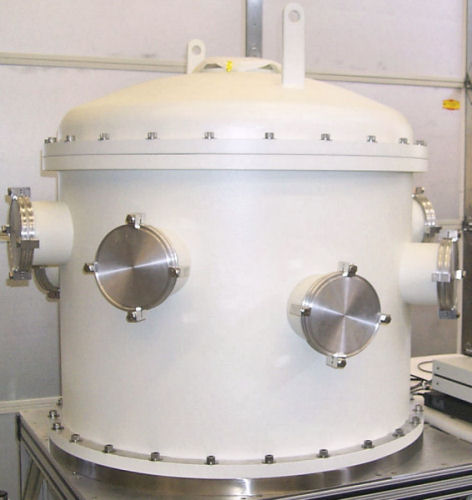
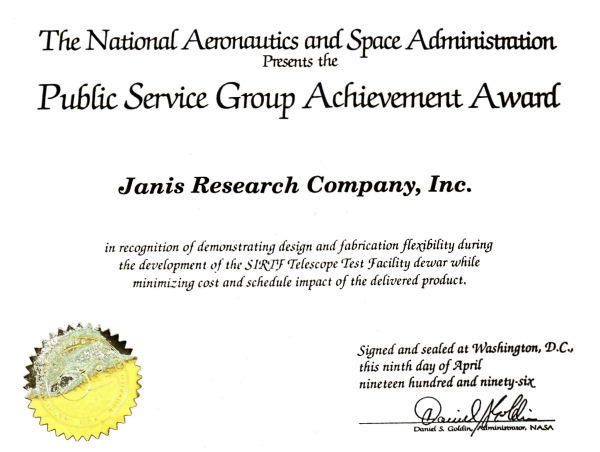
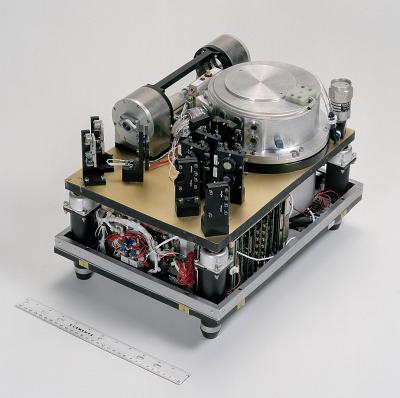
FEATURED PROJECT
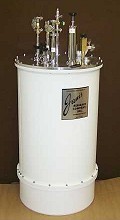
Solid neon shielded superfluid helium cryostat for micro-gravity studies in the space shuttle environment
In 2000, Janis received its second NASA Public Service Group Achievement Award, again from the Jet Propulsion Laboratory. This time it was for Janis’ performance on the FACET program, the development of a cryostat to comply with the Shuttle Hitchhiker program, and providing a platform for microgravity experimentation. This second PSGAA, for a small company, is without precedent in the history of the JPL program and perhaps in all of NASA.
Broader Applications Across Science
Lake Shore’s cryogenic platforms—including closed-cycle refrigerators (CCRs), continuous-flow systems, and custom cryostats—support a wide array of aerospace research disciplines:
- Precise measurement tools for photoemission, Raman, Mössbauer, ESR, NMR and other spectroscopy techniques.
- Systems designed for vibration-sensitive microscopy, low-noise magnetic measurement, ion-source cooling, and material deposition studies.
- Formats that accommodate large sample volumes, narrow-gap magnets, ultra-high vacuum, and optical access architectures for astronomical instrumentation.

Engineered for Space-Grade Reliability
Engineered and validated through real-world space missions, these systems are built to withstand:
- Extremely low temperatures and high vacuum conditions
- High vibration, shock, and acceleration during launch
- Long-term operational stability under cosmic radiation and thermal cycling
Lake Shore has even delivered hundreds of flight-qualified temperature sensors for applications like the NASA James Webb Space Telescope and the Mars Curiosity Rover—testimony to their performance and trustworthiness in critical missions
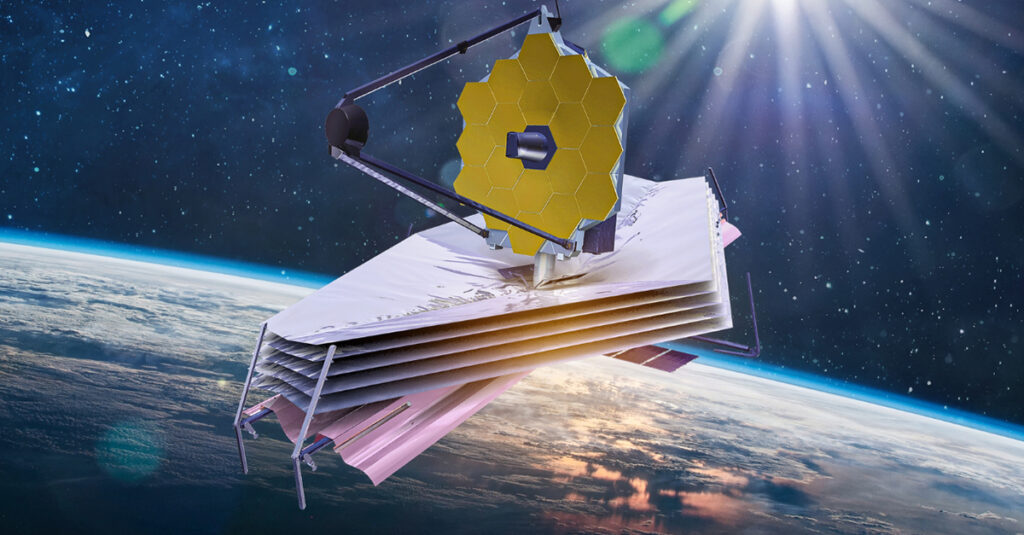
Discover Lake Shore Temperature Range
Sensors including the HR Series – a family of off-the-shelf sensors that have already undergone extreme testing steps
to assure you of extra reliability.
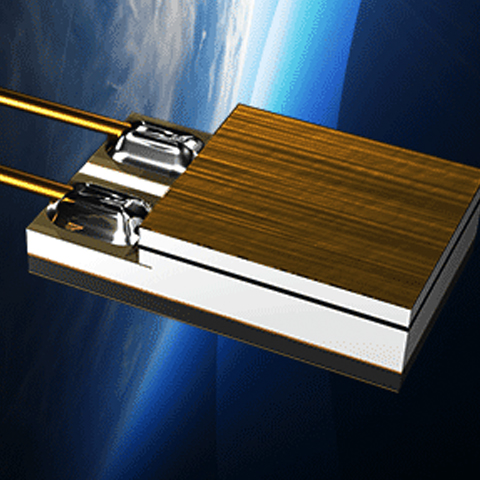

To discuss your aerospace application or upcoming research project, please get in touch with our Technical Director, Dr. Shayz Ikram, by email below or call (01372) 377882.



